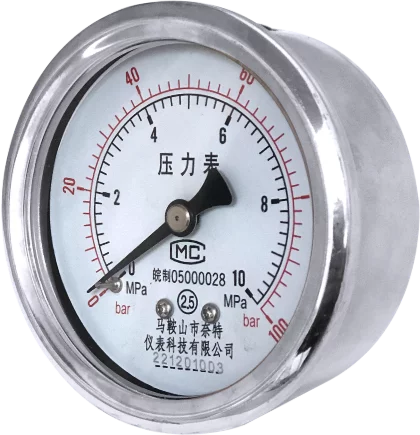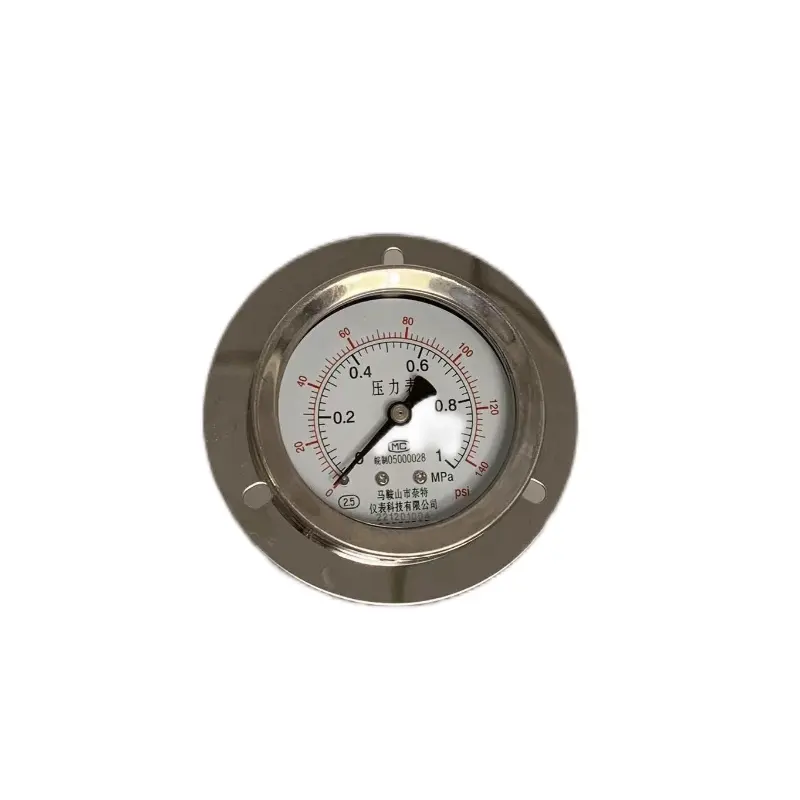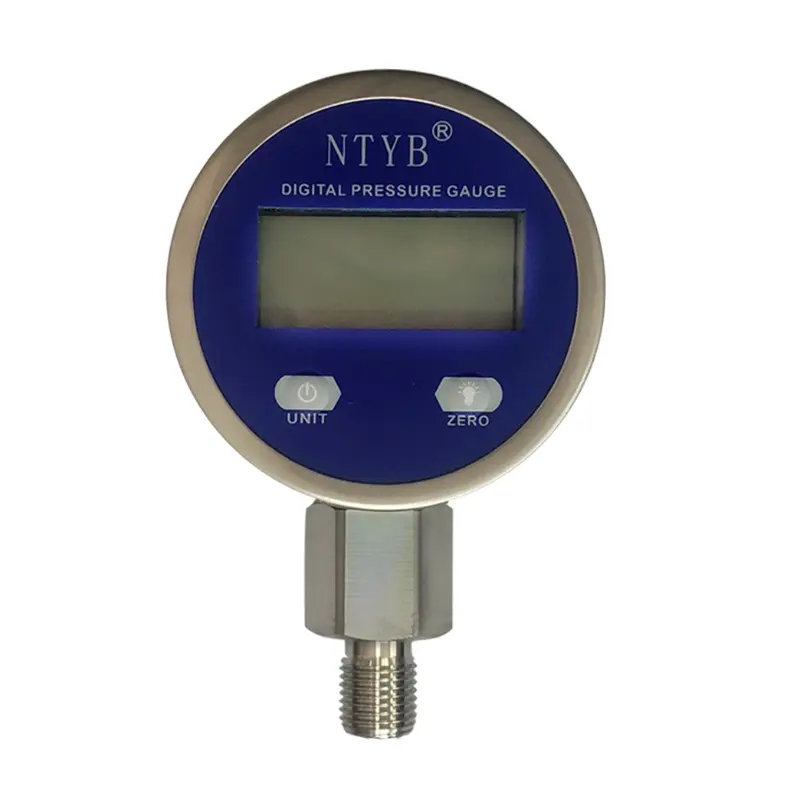Do you know about liquid-filled pressure gauges?
Release time: 2025-09-01
Table of Contents
Pressure measurement is crucial in many industrial and engineering applications, especially under high pressure. As a precision instrument, liquid-filled pressure gauges are widely used in situations requiring stable and accurate pressure monitoring. Today, we will explain the operating principles, advantages, and applications of liquid-filled pressure gauges.

What is a liquid-filled pressure gauge?
A liquid-filled pressure gauge is a pressure measuring instrument filled with liquid. Its structure is similar to that of a traditional mechanical pressure gauge, but its case is filled with a specific liquid (usually glycerin or silicone oil). This liquid filling not only reduces friction in the mechanical components but also provides higher accuracy and a longer service life.
How a Liquid-Filled Pressure Gauge Works
A liquid-filled pressure gauge operates similarly to a traditional spring pressure gauge. It provides readings by measuring the deformation caused by pressure. The difference is that the presence of liquid inside the gauge effectively reduces the effects of vibration and temperature fluctuations. A liquid-filled pressure gauge typically consists of a pressure-sensing element (such as a bellows or diaphragm), an indicator, a dial, and a liquid-filled chamber.
Advantages of Liquid-Filled Pressure Gauges
- High Stability: Liquid filling effectively reduces errors caused by environmental vibration or temperature fluctuations, ensuring the pressure gauge maintains high stability even under extreme conditions.
- High Corrosion Resistance: For specialized applications, such as the petroleum and chemical industries, the housing and liquid filling of liquid-filled pressure gauges effectively prevent corrosion, ensuring long-term instrument use.
- Increased Durability: Liquid filling also reduces the effects of wear and vibration on the pressure gauge’s internal components, thereby improving the instrument’s durability.
- Adaptability to Harsh Environments: Liquid-filled pressure gauges are particularly suitable for use in environments with high vibration, high temperature, or high humidity, as their internal liquid reduces wear on mechanical components.
Applications of Liquid-Filled Pressure Gauges
Liquid-filled pressure gauges are widely used in various industrial fields, particularly in applications requiring highly accurate pressure monitoring and harsh environments. Common applications include:
Chemical Industry: Due to the strong vibration and corrosion present in chemical production environments, liquid-filled pressure gauges ensure accurate pressure measurement.
Oil and Gas Industry: Used in oil drilling, natural gas pipelines, and other applications. Food and Beverage Industry: Liquid-filled pressure gauges effectively ensure pressure control in high-temperature, high-pressure steam systems.
Pharmaceutical Industry: Liquid-filled pressure gauges provide accurate and stable readings for pressure monitoring in pharmaceutical equipment.
How to Choose the Right Liquid-Filled Pressure Gauge?
When selecting a liquid-filled pressure gauge, you need to consider the following factors:
- Operating Environment: Choose a pressure gauge suitable for your application, such as high-temperature, high-pressure, or highly corrosive environments.
- Pressure Range: Ensure the pressure gauge’s measurement range covers your operating pressure.
- Vibration Resistance: Choose a pressure gauge with good vibration resistance to ensure accurate measurement even in high-vibration environments.
- Fluid Type: Select the appropriate liquid fill type based on the operating environment to prevent evaporation or solidification.
Conclusion
Liquid-filled pressure gauges play a vital role in many high-precision and demanding applications. Their high stability, corrosion resistance, and durability make them an indispensable tool in the industrial field. If you need information on selecting or inquiring about liquid-filled pressure gauges, please contact Naite for professional advice and service.


